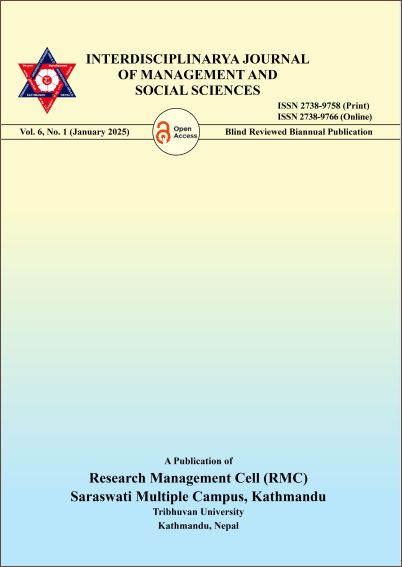Challenges and Opportunities of Continuing Girl's Education in Nepal
DOI:
https://doi.org/10.3126/ijmss.v6i1.75404Keywords:
Girl’s education, education system, empowerment, Nepal, policy practiceAbstract
Girls’ education in Nepal, particularly in rural areas, remains a significant challenge despite various national and international efforts to promote girls’ education. This study aims to examine the socio-cultural, economic, and institutional factors that have affected girls’ education in rural areas. The data were collected from five community schools using a mixed-method approach. Formal and informal communications with students, parents, teachers, and community members were employed to make the description concise and precise. Quantitative data were collected from surveys, and qualitative insights were obtained from interviews, focus group discussions, and observations. The finding revealed that deeply rooted sociocultural norms, economic hardships, and gender-based discrimination are the primary barriers to girls' education. More household responsibilities, less priority for school education, and frequently subjected to early marriage against the law are the hindering factors of girls' education. Regardless of the government’s free education policy, many families cannot afford supplementary educational costs like uniforms and stationery. Gender stereotypes favoring sons over daughters, insufficient female teachers, and a less supportive school environment have maintained dropout rates. The study highlights critical strategies to address these challenges, including raising community awareness about the value of girls’ education, providing scholarships, ensuring access to free educational materials, increasing female representation among teachers, and implementing empowerment programs. These interventions, with gender equality policies, can mitigate the barriers and foster a supportive environment for girls’ education. The research contributes to the broader discourse on educational equity and emphasizes the transformative potential of targeted, context-sentiment interventions in advancing girls’ education in Nepal.
Downloads
Downloads
Published
How to Cite
Issue
Section
License

This work is licensed under a Creative Commons Attribution-NonCommercial 4.0 International License.

